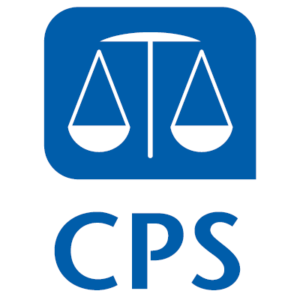Matt Hancock, Secretary of State for Health and Social Care, has written to NHS staff voicing his concern in relation to the use of violence against emergency workers. Hancock’s approach mirrors that taken last year by police chiefs who were worried about the rise in violence used towards their police officers.
Last year’s NHS Staff Survey revealed that 15% of NHS staff and 34% of ambulance trust staff had experienced physical violence. As a consequence, the NHS, police and Crown Prosecution Service have approved a joint agreement on offences against emergency workers.
The purpose of the joint agreement is to provide a framework to set out what victims of this crime can expect and to ensure effective investigation and prosecution. The joint agreement is in relation to assault on all emergency workers and there seems to be a renewed focus on this area.
What differs from the policy towards other victims of violence?
At investigation level the agreement sets out that the Victims’ Code applies. As a result victims will be offered the opportunity to complete an impact statement This is the same for all victims, but there are substantial differences in other respects:
- organisational impact statement – the organisation (hospital, GP surgery, ambulance service) cam set out the impact that the crime has had on their service
- community impact statements may be submitted
- guidance on the management of potential exposure to blood-borne viruses should be considered. It advises on the risk of infection through injury of Hepatitis B, C and HIV
The decision to prosecute
The charging decision is made in the same way for all offences using a two-stage test. The first question is whether there is sufficient evidence for a realistic prospect of conviction. If the answer is yes, the second question is whether a prosecution is required in the public interest.
It is acknowledged that assaults on NHS staff are sometimes committed by those in crisis or with neurological conditions. The CPS must take account of the level of culpability of the suspect including whether he or she was affected by any significant mental or physical health or disability.
 If they were so affected, it may mean that a prosecution is not required. On the other hand, prosecutors are told that a prosecution is more likely if the offence is committed against a person who is serving the public at the time.
If they were so affected, it may mean that a prosecution is not required. On the other hand, prosecutors are told that a prosecution is more likely if the offence is committed against a person who is serving the public at the time.
Challenging a decision not to investigate or prosecute is the same for NHS staff as for other victims. An issue can be raised with the police if they decide not to proceed with an investigation or the victim’s right to review can be invoked following a CPS decision.
An important aspect of seeking our expert legal advice if you are being investigated or prosecuted for such offence is that when appropriate we will identify cases where it is appropriate to challenge a wrongful charging decision.
This will be particularly relevant in cases where a client was suffering from mental or physical disability that could have affected their judgement.
A Seven-point plan
The agreement contains a pledge to emergency workers via a seven-point plan, which can be summarised as:
- assaults and hate crimes will be investigated in the same way as for members of the public;
- the Victims’ Code applies to all victims including staff and volunteers;
- the affected member of staff should not investigate their own assault;
- the right welfare and supervision should be offered to victims;
- the supervisor must ensure that the head of department is informed to provide continuity of welfare support;
- the victim is to complete a Health and Safety incident report with their supervisor;
- to ensure a successful prosecution, the best evidence must be presented.
As can be seen, this plan tackles a perception that assaults against emergency workers could be seen as being something to be expected or tolerated as being a part of the job.
All our lawyers are trained to ensure prosecution guidance is properly applied. We are also trained to ensure that Magistrates and Judges properly apply the sentencing guidelines for any given offence.
It is always a risk where particular types of case are given substantial publicity that courts react in an overly harsh way towards defendants. We will ensure that the best result possible is secured on your behalf.
How can we help?
Assault on an emergency worker is more serious than common assault, carrying a sentence of up to 12 months, and as a result we are seeing more cases come before the Crown Court for sentence.
More serious assault will continue to be charges as allegations of assault occasioning actual bodily harm or wounding.
If you are arrested or know that the police wish to speak to you about an allegation involving an emergency worker, make sure you insist on your right to free and independent legal advice.
The advantages of such early advice legal advice can be found here.
If you have already been interviewed or face court proceedings we can still make a real difference to the outcome of your case.
Legal aid may well be available to fund your defence at court.
We have offices across the East Midlands and will happily travel across the country to provide representation for all football related offences.

Alternatively you can contact us using the form below.
Contact









